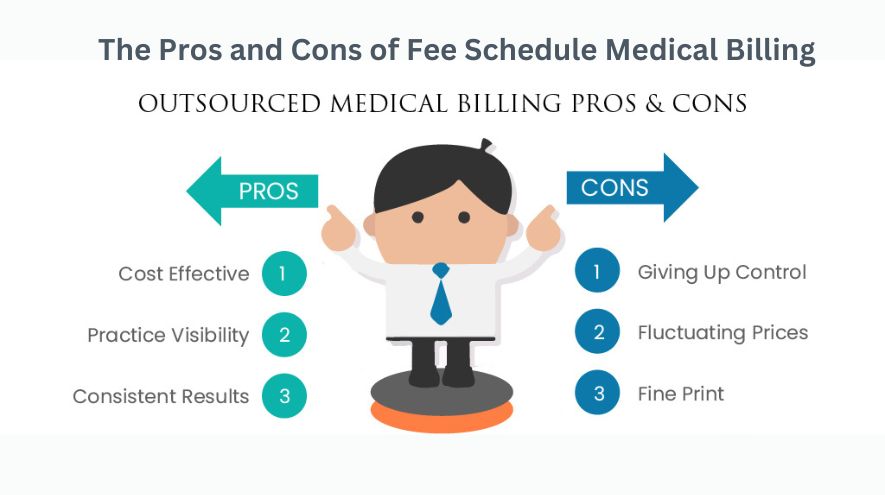Medical billing is a critical aspect of the healthcare industry. Healthcare providers, physicians, and hospitals rely on efficient and accurate medical billing processes to receive timely payments for services provided to patients. Fee schedule in medical billing is one of the methods used for medical billing. In this article, we will discuss the pros and cons of fee schedule medical billing.

Pros of Fee Schedule Medical Billing
- Predictable Revenue: Fee schedule medical billing offers healthcare providers the advantage of predictable revenue. The fee schedule is a pre-determined amount that is paid for each service or procedure. This means that healthcare providers can estimate their revenue based on the services they provide.
- Simplified Billing Process: Fee schedule medical billing is a simplified billing process that is easy to understand. It involves a predetermined fee for each service, and the billing process is straightforward, which means less paperwork for healthcare providers.
- Transparency: Fee schedule medical billing offers transparency to both the healthcare provider and the patient. Patients are aware of the cost of each service, and healthcare providers are aware of the amount they will be reimbursed.
- Reduced Denials: Fee schedule medical billing reduces the chances of denials from insurance companies. Since the fee schedule is predetermined, insurance companies cannot argue about the amount charged for services.
- Reduced Administrative Costs: Fee schedule medical billing reduces administrative costs for healthcare providers. Since the billing process is simplified, there is less need for administrative staff to handle billing.
Cons of Fee Schedule Medical Billing
- Limited Reimbursement: Fee schedule medical billing offers limited reimbursement for healthcare providers. The predetermined fees may not cover the full cost of providing services, which means healthcare providers may lose money.
- Inaccurate Payment: Fee schedule medical billing can result in inaccurate payments for healthcare providers. If the fee schedule is not updated regularly, healthcare providers may receive lower payments than what they should receive.
- Reduced Flexibility: Fee schedule medical billing offers reduced flexibility for healthcare providers. They cannot charge more than the predetermined fee, which means they cannot adjust their fees based on the complexity of the service provided.
- Inadequate Incentives: Fee schedule medical billing offers inadequate incentives for healthcare providers. Since the fees are predetermined, healthcare providers have no incentive to offer additional services or to improve the quality of care.
- Complex Fee Schedule: Fee schedule medical billing can be complex, with different fees for different services and procedures. This complexity can make it difficult for healthcare providers to keep track of the fees and update them regularly.
Conclusion
In conclusion, fee schedule medical billing offers advantages such as predictable revenue, simplified billing processes, transparency, reduced denials, and reduced administrative costs. However, it also has its disadvantages, including limited reimbursement, inaccurate payment, reduced flexibility, inadequate incentives, and a complex fee schedule. Healthcare providers need to weigh these advantages and disadvantages before deciding whether to use fee schedule medical billing or not. We can say that it has both pros and cons of fee schedule medical billing They should also consider other medical billing methods that may offer better reimbursement and more flexibility.

Recent Comments